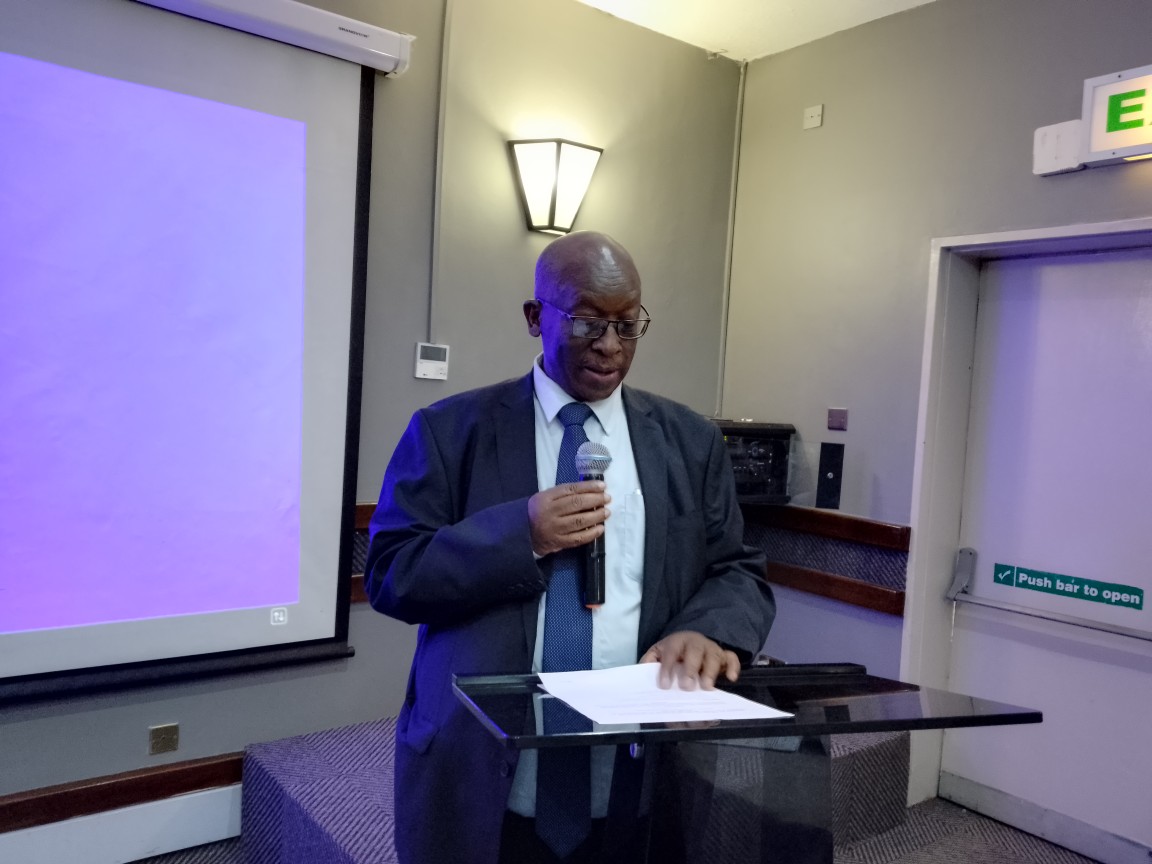There is a need for strategic partnerships, alliances, and linkages with institutions of higher learning and national research institutes for the successful implementation of genome editing tools that require strong institutional capacity, a senior government official has said.
This was said today in Harare by Deputy Chief Secretary in The Office of the President and Cabinet, Mr. Willard Manungo during the African Union Development Agency (AUDA-NEPAD) workshop on ‘Strengthening Institutionalized Capacity in Genome Editing in Biotechnology Research and Development through Strategic Partnerships, Alliances, and Linkages with Institutions of Higher Learning’.
The Government of Zimbabwe has embraced genome editing tools and recognized their immense potential for revolutionizing agriculture, health, and conservation of biodiversity among others. Embracing these tools is a step towards fostering innovation and improving the overall well-being of society. Zimbabwe is one of the few countries in Africa that is participating in the AUDA-NEPAD pilot project on genome editing.
“The exploitation of genome editing tools requires that we have cutting-edge laboratories, state-of-the-art equipment, and a pool of talented scientists who possess the necessary expertise. Therefore, the successful implementation of genome editing tools requires strong institutional capacity.
“Therein lies the need for strategic partnerships, alliances, and linkages with institutions of higher learning and national research institutes. The Government as the pillar of these institutions, provides funding, policy direction, enabling environment for research to ensure that the knowledge generated translates into tangible societal benefits. Therefore, these collaborations will enable tapping into the wealth of knowledge and pooling of resources available in academic, and research institutions as well as industry. Institutions of higher learning nurture young minds and provide a breeding ground for new ideas that will shape the future of biotechnology,” Mr. Manungo said.
He said the symbiotic relationship among academia, research institutions, and Government is beneficial for the development of the economy where all parties benefit from shared expertise, resources, and networks.
However, Mr. Manungo said it is essential to emphasize that while pursuing these partnerships and collaborations, the priority should be on the establishment of a robust regulatory framework for genome editing.
“As technology advances, we must ensure that ethical considerations, safety standards, and public engagement are at the forefront of our decision-making processes. A well-defined regulatory framework will instill public trust and promote responsible use of genome editing,” he added.
Mrs. Florence Nazare, the AUDA-NEPAD Head of Centres of Excellence thanked the Scientific and Industrial Research and Development Centre (SIRDC) and the National Biotechnology (NBA) for being the leading implementing agencies of genome editing in the country and for bringing stakeholders to the table to discuss the important biotechnology.
“It is critical to have learning Institutions on board. The knowledge economy is important. They are the bedrock of research to help translate knowledge into products that resolve challenges. Research and Development addresses societal issues. These institutions should continue to work with other stakeholders on fundamental issues to enhance livelihood.
“There is a need to modernize agriculture using biotechnology. Africa should not wait to receive innovations from other countries. Ethiopia has a motto for science for industry. Agriculture is the bedrock of many economies. The government should finance research and technology, especially as science, technology, and innovation optimize agriculture. Without commodities to trade, the African Continental Free Trade Area (AfCFTA) won’t be successful. Science should be at the forefront of linking with extension services to get updates on whether innovations are working. Knowledge workers should be allowed to focus on translative science. All enablers to allow STI should be supported to influence national development,” Mrs. Nazare said.
In a speech read on his behalf, by Dr. Vimbai Samukange, Dr. Leonard Madzingaidzo, the SIRDC Chief Executive Officer said the Government of Zimbabwe has embraced GE technology, and through, the Scientific and Industrial Research and Development Centre (SIRDC) together with the regulator the National Biotechnology Authority (NBA) has led in the crafting of a National Genome Editing Communication and Advocacy Strategy, (GECAS).
This strategy shows commitment to harnessing the power of cutting-edge technology for the benefit of the country and its people through transparent, honest, and timely communication.
With new technologies coming up, Dr. Madzingaidzo said there is a need to continuously review the education curriculum and in this case, the inclusion of genome editing modules in the curriculum will equip students with the necessary knowledge and skills to navigate the dynamic landscape of modern science.
He said it will empower them to become active contributors to the scientific community, driving progress and innovation in various sectors. Embracing genome editing as an integral part of the educational framework fosters a generation of scientists who will shape the future of Zimbabwe and contribute to global advancements in science and technology.
“Integrating genome editing modules into the curriculum aligns with National Vision 2030, of attaining an upper-middle income society as well as dovetailing the African vision of promoting sustainable development – Agenda 2063 dubbed “Africa we want”.
“The potential applications of genome editing in agriculture can help us develop crops that are more resistant to diseases, pests, and environmental stresses. This, in turn, will enhance food security and contribute to the well-being of our nation, as livelihoods are improved. Additionally, genome editing offers new avenues for the treatment of genetic disorders, potentially transforming the lives of individuals affected by such conditions,” he added.
Susan Dada, Senior Programme Officer at AUDA-NEPAD Centres of Excellence said such meetings strengthen linkages among universities and colleges to help foster a value-adding network to support an enhanced adoption of Genome Editing through a common understanding of the tool and its potential to optimize agriculture.
She said she envisages a rapid appraisal of current curriculum, standards, and best practices by schools and departments of agriculture, technology, and innovation focusing on agricultural biotechnology to identify gaps.
